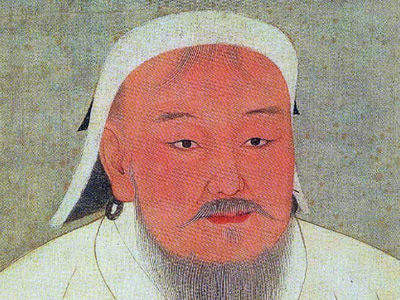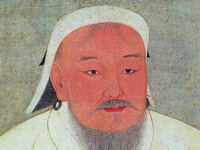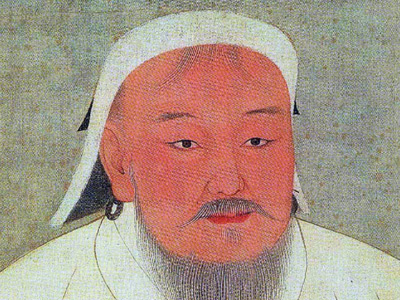Genghis Khan (1162-1227)

Return to Power
Around the year 1197, the Jin initiated an attack against their formal vassal, the Tatars, with help from the Keraites and Mongols. Temüjin commanded part of this attack, and after victory, he and Toghrul were restored by the Jin to positions of power. The Jin bestowed Toghrul with the honorable title of Ong Khan, and Temüjin with a lesser title of j'aut quri.
Around 1200, the main rivals of the Mongol confederation (traditionally the "Mongols") were the Naimans to the west, the Merkits to the north, the Tanguts to the south, and the Jin to the east.
In his rule and his conquest of rival tribes, Temüjin broke with Mongol tradition in a few crucial ways. He delegated authority based on merit and loyalty, rather than family ties. As an incentive for absolute obedience and the Yassa code of law, Temüjin promised civilians and soldiers wealth from future war spoils. When he defeated rival tribes, he did not drive away their soldiers and abandon their civilians. Instead, he took the conquered tribe under his protection and integrated its members into his own tribe. He would even have his mother adopt orphans from the conquered tribe, bringing them into his family. These political innovations inspired great loyalty among the conquered people, making Temüjin stronger with each victory.
HISTORY

RESOURCES
This article uses material from the Wikipedia article "Genghis Khan (1162-1227)", which is released under the Creative Commons Attribution-Share-Alike License 3.0.
© Stories Preschool. All Rights Reserved.








